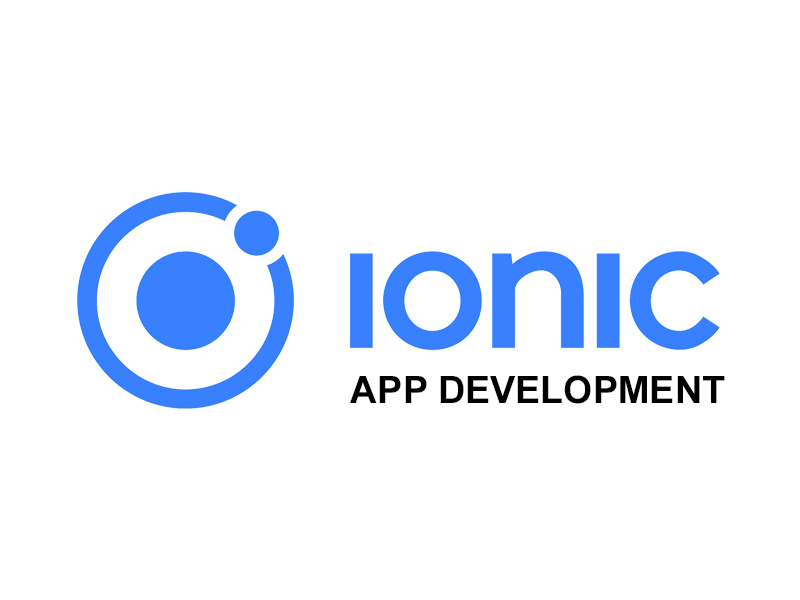Among all the leading frameworks and technologies that evolved in recent years for app and software development, Ionic stands as a top choice for app developers. Whether for backend development along with other frontend frameworks such as Angular or React Native or for building high-performance hybrid apps.

Before we explain the various advantages of the framework let us define it and see its critical attributes in brief.
What is Ionic Framework?
Ionic is a framework which is extensively used to develop hybrid and cross-platform mobile apps. Ionic is a free and open source framework that actually uses HTML5 language for programming. Thanks to its HTML5 programming language underneath, it can easily be used with mobile frameworks such as PhoneGap.
- Works excellent with TypeScript 2.1 and TypeScript 2.2: Typescript is an excellent programming language that carries JavaScript characteristics and allows using mixed classes. Ionic is fully compatible with both versions of TypeScript.
- IonicPage Decorator: Ionic Page Decorator helps to incorporate deep links inside the app.
- Lazy Loading: Lazy loading is a key feature of Ionic that helps faster loading of the app while progressively loading other elements in the backdrop.
Key Advantages of using Ionic Framework
Ionic as a new framework compared to many other established frameworks in the market has gained great popularity thanks to several key elements like reliable code, component-based architecture, and capability to build a visually appealing interface.
Let us mention here some of the key advantages of the Ionic framework for app development companies.
Ideal for Cross-Platform development: Ionic is an ideal framework for building apps for multiple platforms. By using various web-friendly languages such as HTML, CSS and JavaScript, it makes extremely easier to transport an app from one platform to another.
Free and Open Source: Ionic is an open source and totally free framework, and developers don’t need to bear any cost for using it.
Great for Creating Beautiful UI: Ionic helps app developers to build a truly appealing and attractive user interface with ease.
Customisable with Cordova Plugins: Ionic by using Cordova plugins helps developers to take full access to several OS features of the targeted platform.
Robust Developer Community: the Ionic framework is powered by a huge community of developers, and you can get an extensive range of resources on the web.
Ionic 4 and Enhanced Value Offerings
The Ionic 4 Framework has now come with an extensive range of value additions that made the framework even more powerful and well-equipped for building future-ready apps. With the Ionic 4, app developers have got almost everything under their command for most sophisticated projects across hybrid apps, native apps or cross-platform apps.
Here we are going to explain some of the principal features of the new Ionic 4 and their advantages for the mobile app development projects.
Stencil
Ionic 4 comes with a great web component compiler called Stencil. Stencil offers an unmatched value addition for the Ionic developers to help to compile the programming code. Stencil as a web component compiler can compile and build different commonly used web components. The Stencil compiler further allows the ionic framework to work with several other frameworks with extreme ease. Lastly, Stencil helps the framework to sync easily with various hybrid development APIs and environments such as Virtual DOM, JSX and TypeScript.
Web Components
Ionic 4 as the latest version comes with substantial value addition in the form of a whole package of web components. These components are not only ready to work across all modern browsers to help developers write code once and utilize them again and again. The Ionic 4 web components help to boost the performance of web apps to the optimum irrespective of their niche and size. Basically, the new web components added to this Ionic version helps easier and better rendering of the CSS and HTML. This results not only in a high performance but also a great look and feel of the app.
Capacitor
Ionic four is enriched with Capacitor which is nothing but a code execution layer. Capacitor working much like a cross-platform API actually can program codes for native platforms and can create native SDKs from the web programming code. This in effect gives Ionic 4 versatility and capability to build progressive web apps about which we will discuss on the next point.
PWA enabled
Progressive Web Apps (PWA) are tremendously popular these days because of their quintessential ability to load at lightning speed. Ionic 4 offers a really powerful and richly layered UI building platform for cutting-edge Progressive Web Apps. The lazy loading feature of the Ionic 4 is already well known to boost loading speed by prioritizing the immediately accessed page elements while continuing to load other elements at the background. This enhanced support for building PWA apps along with lazy loading feature gives Ionic ultimate edge in terms of performance.
Conclusion
Ionic 4 boasts of material design capability for modern apps as well. It comes with everything that a modern performance-savvy web app project can aspire about. From delivering strong and aesthetically appealing user interface to opening options of customization with themes, you have everything packed in between.
On top of this, Ionic 4 comes loaded with a robust reserve of web components that can ensure the fastest ever loading speed and unparalleled performance. To establish this point we can refer to a finding By the Google Lighthouse benchmark tool which gives the new web component compiler of the framework full marks.

[…] to meet the needs of our clients. The IONIC platform has been praised by many app developers and as The World Beast magazine states, it is useful to our company because “The Ionic framework is powered by a huge community of […]